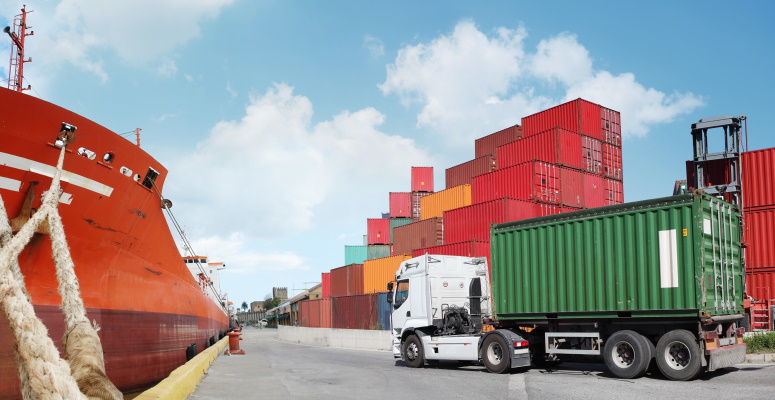
Another data standard? No need!
We already have a proven one—the Canada Border Services Agency
By Bryn Heimbeck, President and Co-Founder, Trade Tech, Inc.
There have been lot of suggestions around how to manage port congestion in the past two years. The suggestion has been made to focus on a better flow of data in order to achieve the efficiency and productivity needed for our ports to handle the large cargo flows they have been facing. This would alleviate the need for major capital improvements. In the U.S., the Department of Transportation and the Federal Maritime Commission are looking to accelerate digitization within the industry in an effort to address the challenges that are plaguing today’s supply chain.
Both the DOT and FMC have pointed to the lack of a global data standard as the challenge and calling for a new one to be created—working collaboratively with commercial organizations that will benefit from the government’s investment in the massive undertaking of creating a new standard.
We know— as most Customs House Brokers know—we do not need another data standard. We have a well-established data standard system that has been refined over the last two decades to near perfection by U.S. Customs.
The industry welcomes the government’s response and willingness to facilitate a solution to the supply chain crisis, but the DOT and FMC are overlooking that the existing U.S. Customs’ standard is already a solid foundation upon which to build.
Neutral, not-for-profit U.S. Customs and its international counterparts represent a fine-tuned global data standard that is already used by Ocean Carriers, Port Terminals, Customs Brokers, and Customs Agencies throughout the world, with the standards established by the World Customs Organization (WCO) model tying them together.
Data standards are not new.
Congestion at ports has raised calls for many reforms, including greater transparency. But the government’s call to create new data standards is misguided, as:
• WCO data standard has been followed globally since the early 1980s
• Regulations for compliance expanded in 2003 as part of increased security efforts following 9/11
• These regulations are strictly enforced by many global Customs agencies and carry heavy fines and penalties for non-compliance
A proven global data standard–U.S. Customs and Border Protection’s Automated Commercial Environment (ACE) system.
Data Standards make it easier to create, share, and integrate information. The U.S. Customs and Border Protection’s Automated Commercial Environment (ACE) is an exceptional system for today’s Ship, Air, Rail, and Truck transport. This foundational standard also maintains well -regulated processes and procedures. Multiple stakeholders, including carriers and ports, are tied into this digital communication system.
Under ACE:
• Every required data element must be transmitted to ACE 24 hours before cargo is loaded aboard a vessel (the timeframe for Air Shipments is shorter)
• ACE covers all contingencies for cargo movement from origin to destination including the vessel arrival at the port of entry, any in-bond movements, Permits to Transfer (PTT), Immediate Transportation Entry (IT), Immediate Export (IE), and Transport and Export (T&E). Any failure to comply results in fines ranging from a minimum of $5,000 to the value of the cargo. Truly bypassing US Customs is called smuggling and can result in potential jail time.
An ill-advised pivot to creating new standards is an enormous challenge that will likely:
• Call for a vast number of resources, both labor and capital investments
• Take several years to develop
• Require more than a decade for any substantial adoption from the industry
• Will not be adopted globally



